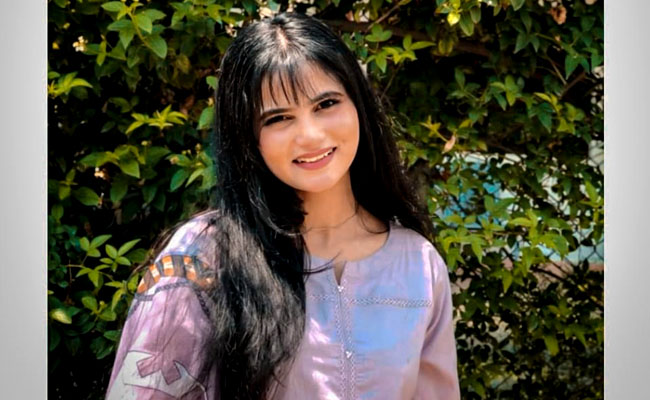By Faiqa Khalid (Intern at KIIR)
On October 27, 1947, a dark chapter unfolded in the history of Jammu and Kashmir. This day, known as Black Day, marked India’s forceful occupation of the region against the will of its people. The dream of self-determination for Kashmiris was shattered, leaving behind a legacy of pain that still haunts us today.
Kashmir, a land of profound beauty and rich culture, was meant to be a natural part of Pakistan based on religious, geographical, and cultural affinities. However, the controversial accession of Jammu and Kashmir to India by its Hindu ruler, Maharaja Hari Singh, laid the foundation of the Kashmir dispute. To this day, there is debate over the existence of the Instrument of Accession, a document that was supposedly the basis for this annexation. The uncertainty surrounding this document has cast doubt on the legality of India’s claim to the region.
In the aftermath of this contentious accession, the people of Jammu and Kashmir bore the brunt of India’s military might. The Jammu region witnessed a horrific annihilation, with over three hundred thousand Kashmiri Muslims losing their lives in just two months. This bloodshed was part of a disturbing plan to alter the demographic composition of the region.
Despite the immense suffering and tragedy, Kashmiris never surrendered their rights to freedom. They resisted India’s illegal occupation from the very beginning, eventually leading to India approaching the United Nations in 1948 for help in settling the Kashmir dispute. The UN Security Council passed resolutions that invalidated India’s occupation and called for a plebiscite in Jammu and Kashmir, allowing its people to determine their fate.
Over the years, Kashmiris strengthened their struggle for self-determination, with mass uprisings becoming a symbol of their resilience. The years 2008, 2009, 2010, and 2016 witnessed massive protests, with millions taking to the streets of Srinagar, demanding their right to decide their destiny. Tragically, India responded with brutal force, using bullets, pellets, and tear gas, resulting in the deaths of hundreds and injuries to thousands.
Indian state terrorism in Jammu and Kashmir has left an indelible scar on the region’s people. The numbers speak for themselves: nearly 96,000 Kashmiris martyred, 22,934 women widowed, 107,842 children orphaned, and 11,246 Kashmiri women subjected to molestation or gang-rape. Thousands of youth have disappeared in custody, and the discovery of mass graves raises alarming questions about their fate. Since the 2016 uprising following the extrajudicial killing of Burhan Wani, more than 1,480 Kashmiris have been killed, and over 29,840 people have been injured by Indian forces’ bullets, pellets, and tear gas shells. The pellet victims, among whom 2,000 have lost their eyesight, serve as a grim reminder of the relentless brutality.
Narendra Modi’s government escalated the suffering of the people of Indian Illegally Occupied Jammu and Kashmir (IIOJK) by abrogating the region’s special status on August 5, 2019. This move intensified efforts to impose the extremist Hindutva ideology and a settler colonial plan to change the demographics of the Muslim-majority region. Federal laws were imposed, domicile rules were changed, non-Kashmiri Hindus were granted domicile status, and the names of places and departments were replaced with Hindu names. Delimitation of constituencies aims to favor Hindu-dominated areas in the occupied territory.
In addition to these illegal measures, Indian troops intensified cordon and search operations, creating an atmosphere of fear and oppression. Innocent youth were killed in fake encounters, and people of all ages and genders were arrested and tortured. A media policy was introduced to suppress the truth, intimidating and detaining journalists who dared to report on the atrocities committed by Indian forces.
The primary objective behind these unilateral, illegal, and brutal actions is to transform IIOJK’s Muslim majority into a minority and undermine the essence of UN resolutions on the Kashmir dispute. Pakistan has been tirelessly advocating for Kashmir’s cause on the international stage, with its government highlighting India’s war crimes and crimes against humanity in IIOJK during his address to the UN General Assembly. The Pakistan Army has pledged unwavering support to the Kashmiri cause.
However, despite international attention, the suffering of the Kashmiri people remains unabated. Pregnant women like Firdausa are shot and killed, scholars like Dr. Sabzar Ahmed Sofi and Asif Ahmed Gojri face brutal ends, and youth are mercilessly targeted. The situation is further exacerbated by inflammatory statements from Indian army chief General Bipin Rawer, openly declaring India’s intention to suppress Kashmiris’ aspirations.
The UN High Commissioner for Human Rights issued a damning report in 2018, highlighting the crimes committed by Indian troops in Kashmir. It called for an independent inquiry, but India dismissed the report and denied access to independent investigators. The world’s selective approach to this crisis, driven by commercial interests, is a painful reality for the Kashmiris.
As we commemorate Black Day on October 27, we are reminded of the unending sorrow that engulfs Kashmir. The day serves as a blunt reminder that the Kashmiris reject India’s illegal occupation and remain steadfast in their struggle for self-determination. In the wake of India’s actions on August 5, 2019, a resolution to the Kashmir dispute is more precarious than ever for regional and global peace.
In the midst of this ongoing tragedy, the world must not turn a blind eye to the plight of the Kashmiri people. It is a moral imperative for the international community to act to ensure that the suffering of the Kashmiris finally comes to an end. Until then, Black Day will continue to cast a long shadow over the beautiful land of Kashmir, where the people’s dreams of freedom remain unbroken.
In the darkest of times, the strength of the Kashmiri individuals sparkles as a reference point of trust. On this Dark Day, may their immovable soul motivate us all to stand for equity, peace, and the proper to self-determination.
The writer is a student of International Relations at International Islamic University, Islamabad and is currently serving as an intern at Kashmir Institute of International Relations.
